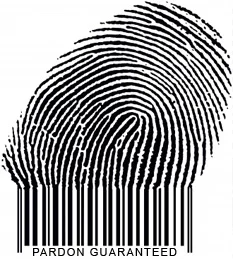La mission de l’Office Canadien de Pardon est d’aider toute personne ayant un casier judiciaire canadien à obtenir le Pardon canadien et la levée d’interdiction d’entrée aux États-Unis.

Canada Pardon Services specializes in assisting any person with Canadian criminal records to obtain the Canadian Pardon and the U.S. Entry Restriction Waivers.
Demandez votre Pardon Fédéral Waiver Américain

Nous nous engageons à faire preuve de transparence, d’intégrité et de responsabilité dans la réalisation de notre Mission. Nous croyons que la contribution d’un personnel aussi compétent que motivé est essentielle à la réalisation de notre Mission.
A partir du 13 mars 2012, le terme Pardon a �t� remplac� par le terme Suspension de casier judiciaire.
La réhabilitation (Le Pardon) est une mesure qui permet à une personne condamnée pour une infraction criminelle d’avoir son casier judiciaire retiré des autres dossiers judiciaires des délinquants.
La loi sur le casier judiciaire prévoit que tous les dossiers ou documents relatifs aux condamnations d’une personne réhabilitée, détenus par la Gendarmerie Royale du Canada, un ministère ou un organisme fédéral, doivent être effacés.
Ainsi les renseignements relatifs à ces condamnations sont retirés du système informatique du Centre d’Information de la Police Canadienne.
Toute personne qui a été condamné pour une infraction criminelle et a complètement purgé sa peine peut demander une réhabilitation. Lorsqu’un individu a fait l’objet de plusieurs condamnations, il doit avoir purgé complètement toutes les peines imposées.
Par exemple, on considère qu’une personne a complètement purgé sa peine lorsqu’elle a payé l’amende, la suramende et les frais en totalité; entièrement respecté l’ordonnance de dédommagement; fini de purger sa peine d’emprisonnement, y compris la période de liberté conditionnelle ou de liberté d’office; fini de purger sa peine d’emprisonnement avec sursis; complété sa période de probation en respectant les conditions.
La décision d’accorder une réhabilitation est prise par la Commission Nationale des Libérations Conditionnelles en vertu de la Loi sur le casier judiciaire lorsqu’une personne est condamnée pour une infraction criminelle, les renseignements relatifs à cette condamnation sont inscrits dans un casier judiciaire. Ce casier judiciaire est classé avec les dossiers judiciaires des autres délinquants, à moins que cette personne ne bénéficie d’une réhabilitation.
Si vous êtes reconnu coupable vous recevez malheureusement un casier judiciaire à vie et ce dossier ne s’efface pas automatiquement avec le temps, pour l’effacer il est obligatoire de passer par le processus du Pardon.



© Copyright 2025. Tous droits réservés.
In 1981, when he was a student at the university, Pierre Sévigny was taken in a story pyramid plan. « It’s a trick to make easy money. I was sent before the judge and I was sentenced for fraud. I had to pay a $2500 fine and I had a criminal record, « he says. To launder his reputation, Mr. Sévigny obtained a Pardon a few years later.
Businessman busy, he then travelled on numerous occasions to the USA. He also lived in Sweden for four years. But last March, U.S. Customs agents have refused to let him pass. « For whatever reason, they knew that I had already had a criminal record. They do not really want that I cross the border, « he says.
Mr. Sévigny was initially surprised by this refusal. « I repeated that I had obtained a Pardon, but customs officials were laughing. They said that the terrorists who blew up a nightclub in Indonesia had also obtained a Pardon. What ridiculous comparison! « Protests businessman.
Since customers were waiting in New York, Mr. Sévigny protested. « I said that I had not committed violent crime. I talked to my clients. I was finally passed with a special permit, but I’ve made it clear that henceforth I would be banned as I would not have the waiver, « he said.
Cases like that of Mr. Sévigny, the company Identification Canada sees more and more. « In addition to businessmen and travelers, those most affected by the tightening of border controls are truckers, » says co-owner of the company, Steeve Hollingworth.
For a truck driver, obtain a waiver is a real ordeal. « It’s so long! While waiting to have their waiver, drivers are forced to remain in Canada. If they still try to cross the border, their truck can be seized, « said Jean-Claude Fortin, chairman of the transportation company J.-E. Fortin, Saint-Bernard-de-Lacolle.
And even with their temporary permit, truck drivers are penalized. « At customs, they are automatically escorted out. They lose a lot of time and, in the trucking industry, every minute counts, « says Fortin.
The customs have assured him that the procedure would be amended in September. « I hope this will be done. Because, currently, a driver can be seriously penalized just because he stole a chocolate bar in his youth. «
Ariane Lacoursière
August 5, 2007 – 07h11
La Presse
Canadians with criminal records, or even some who have been finger printed but never convicted, may see themselves rejected when they tried to cross the US border.
The US department of immigration is dramatically increasing the control policy in the US borders; the risks of detention, deportation, and even incarceration have never been higher.
Due to the high volume of traffic between Canada and the U.S., there is often a false sense of security in citizens of both countries, that the chances of being caught are high due to the new control policy. Then, the results of being caught in the U.S. or trying to enter the U.S. with an undeclared criminal record can be severe and should not be ignored.
Once the Pardon is granted the person’s criminal record is sealed which means that it will not show up in the Canadian databases typically searched by law enforcement agencies on both sides of the border. However, the criminal record is not erased and can be disclosed or re-instated in the appropriate circumstances.
In terms of crossing the border, a Canadian Pardon has no value because it has no effect on records kept in the United States. Therefore if your criminal record has been entered into the U.S. system for any reason you may still be refused entry into the U.S. based on that criminal record even though the record has been sealed in Canada.
To gain legal entry into the U.S. with a Canadian criminal record it is therefore advisable to apply for a U.S. Travel Waiver.
In conclusion, the Canada/U.S. border is increasingly becoming more of a hurdle than a turnstile. Canadians with criminal records should spend some time investigating their options and the possible repercussions of ignoring the risks.